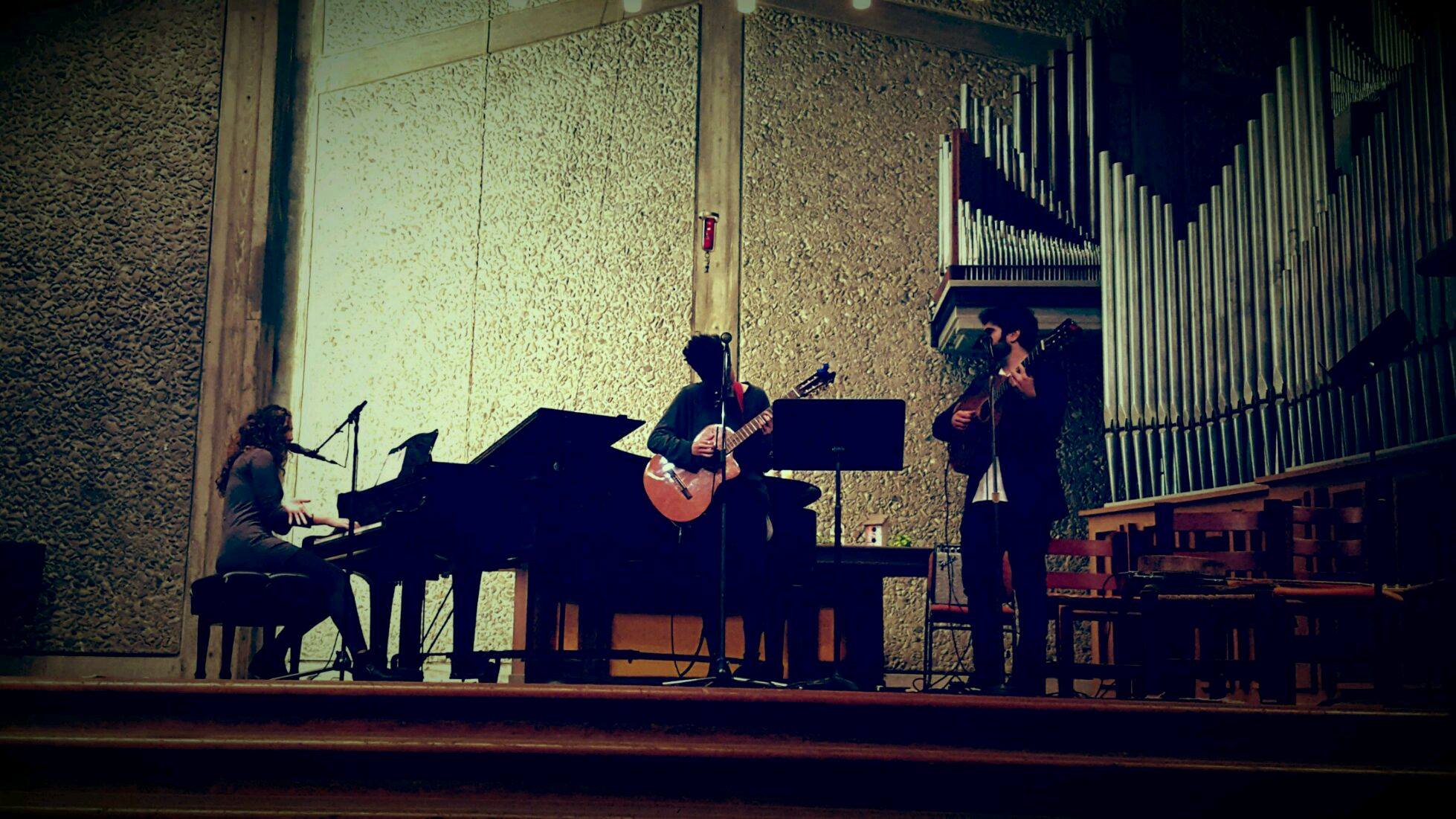The nature of collaborating musically is such that people need to listen to each other, explained Aaron Shneyer, founder and director of Heartbeat, a non-profit that since 2007 has brought Israeli and Palestinian youth musicians together to play music and build mutual trust and understanding.
“That’s something unique to our program that other dialogue programs don’t have. That skill [of listening to each other] is then translated into the youths’ relationships and conversations,” Shneyer, who’s based in Washington, D.C., said.
READ: MATISYAHU TOURING WITH PALESTINIAN MUSICIAN TO PROMOTE PEACE
On March 28, two Heartbeat graduates, Israeli Dana Herz and Palestinian Rasha Nahas – both professional musicians – will perform alongside Shneyer at Toronto’s Small World Music Centre, followed by a conversation about the organization.
The concert is part of a North American tour designed to engage local Canadian and U.S. communities in the work done by Heartbeat, which is primarily funded through donations and grants from North America, and hopefully to garner the financial support to expand it. Heartbeat’s core initiative, currently taking place in Haifa and Jerusalem, brings together ensembles of musically inclined Israeli and Palestinian high school students who, for two years, meet for weekly, music-based dialogue sessions.
Heartbeat GoFundMe CampaignANNOUNCING: THE 2016 HEARTBEAT GOFUNDME CAMPAIGN!!! In the next two months Heartbeat will set out to tour the USA, release a new album, build a studio in Haifa and raise $70k to expand our programs for Israeli and Palestinian youth. JOIN US TODAY TO INCREASE OUR YOUTH MUSICIANS IMPACT: www.gofundme.com/heartbeat2016
Posted by HEARTBEAT: Amplifying Youth Voices on Monday, March 7, 2016
“Each high school chapter really identifies itself as a band. They’re building a repertoire and working on the same sort of personal dynamics that you’d find in any group of friends or musicians,” Shneyer said.
After graduating from college, Shneyer, 32, got involved with American peace-building organization Seeds of Peace, first working as a music counsellor at its international summer camp in Maine, and subsequently doing work for it in Tel Aviv and Ramallah.
“As powerful as that work was, I was yearning for a way to do more with music and to explore how it empowers people to make change,” he said.
In the spring of 2007, he received a grant from Fulbright in partnership with MTV for his proposal to start a band made up of 12 Israeli and Palestinian high school students from west and east Jerusalem. “The plan was for them to explore music together and learn about each other’s backgrounds, and about music as a tool for education,” Shneyer said.
The pilot band worked together for nine months before performing a finale concert that he said drew 300 people.
“It seemed too powerful and exciting to stop there, so we kept going,” he said.
Nine years later, each chapter – typically comprising 8 to 12 students, split evenly between Israelis and Palestinians – is guided by an Israeli and a Palestinian staff member trained in music and dialogue facilitation.
https://www.youtube.com/watch?v=ngRQpP8vRU4
“The staff is able to alternate where needed between spoken dialogue between the students, wherein they put their instruments aside, and musical workshops that improve the kids’ ability to create music,” Shneyer noted.
Heartbeat also offers a graduate program to students who have completed the high school track. In it they develop leadership and activism skills, and take what they’ve learned into their communities.
READ: ISRAELI SISTERS MAKE A SPLASH IN YEMENI-ARABIC
Shneyer said about 100 youth participants have been through Heartbeat’s programs. They typically come from diverse musical backgrounds, with interests ranging “from classical to hip hop to jazz to heavy metal… some who come have never written a song before, and some are studying composition.”
He said that “negotiating between different musical styles” is a key component of each band’s bonding process.
“Our work is really about equalizing spaces, because these sorts of spaces don’t exist… in these youths’ daily lives. We’re trying to challenge that status quo and get young people from both sides to see each other as equals, to confront the social evasion of each other [that’s encouraged of them],” he said.
Shneyer said each group typically has an initial period of becoming friends and building trust, during which they’re often hesitant to address political issues.
“Then, when they’re ready, they can raise those things with each other without it tearing the group apart, because they’ve created a space for compassionate listening and empathy,” he said.
